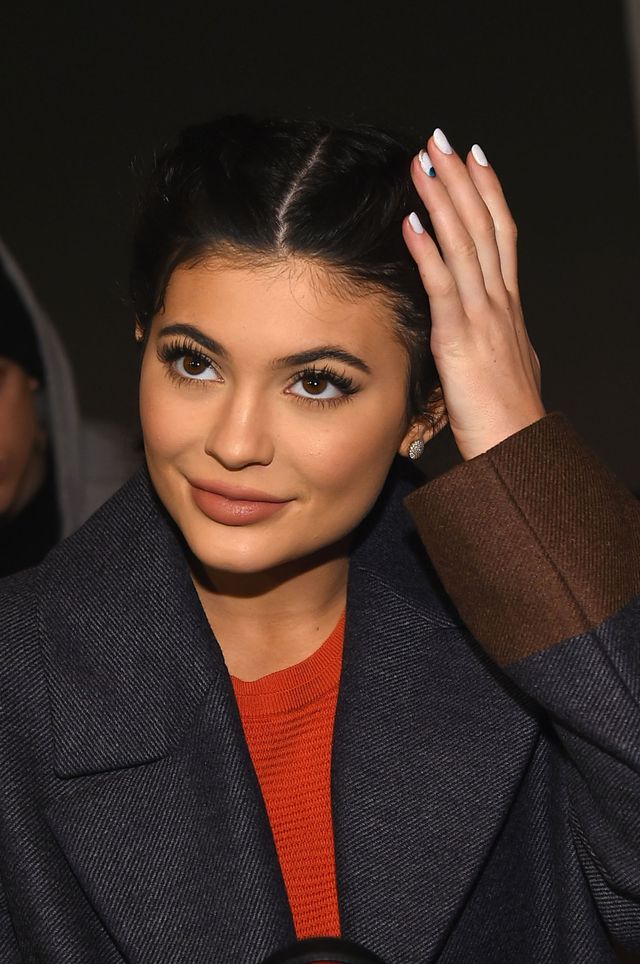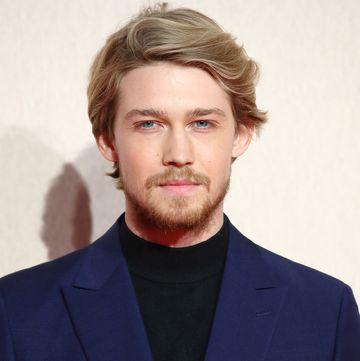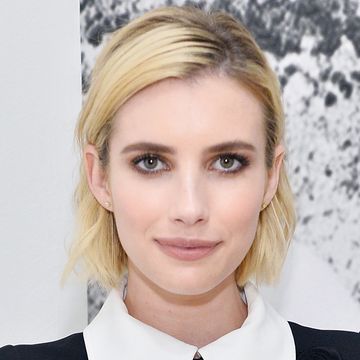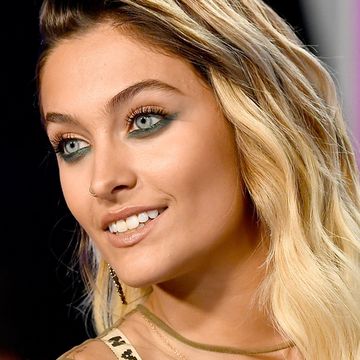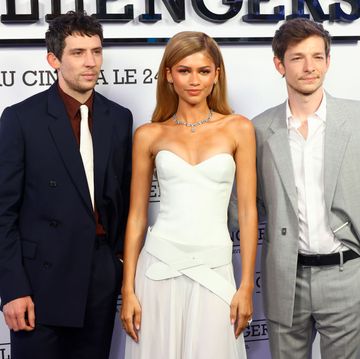Celebrities are just like us...in that some of them likely spend too much time on Reddit and then come away believing some pretty strange conspiracies about the world. We were reminded of this fact this weekend, when Hayden Panettiere tweeted that she is very concerned about chemtrails.
For those of you who don't know, the chemtrails conspiracy theory posits that the long-lasting trails left by jets flying overhead are actually full of harmful chemicals that are being deliberately sprayed on the population. These chemicals are thought to do anything from control the weather to manipulate our brains. For the record, those trails are made of condensation, and the chemtrails theory has been roundly disproven by the scientific community, but Panettiere is "just curious. We don't know!"
Panettiere isn't the only celebrity who graced us with their worldview. Over the weekend, Shaquille O'Neal revealed he's not into that whole heliocentrism thing. "It's true. The Earth is flat. The Earth is flat. Yes, it is. . .I'm just saying. I drive from Florida to California all the time, and it's flat to me," he said on his podcast, The Big Podcast, when prompted about Cleveland Cavaliers player Kyrie Irving's flat earth beliefs.
[youtube ]https://www.youtube.com/watch?v=TKXCBlUPJqM [/youtube]
Given that the government is not exactly the most trustworthy right now, it's to be expected that some people will take a healthy skepticism and run with it. But while belief in conspiracy theories remains a taboo subject, many celebrities appear to gladly use their platforms to speak about or advocate for their beliefs.
While it would be easy to chalk up these beliefs as those of wealthy eccentrics who have long ago lost touch with the "real" world, psychologists argue that we're predisposed to believe in conspiracies. "We have certain biases, certain ways of thinking about the world and explaining events in the world, that are intuitively satisfying and plausible, and conspiracy theories resonate in many ways with some of these biases," Rob Brotherton, adjunct assistant professor at Barnard College and author of Suspicious Minds: Why We Believe Conspiracy Theories, told ELLE.com.
Celebrity conspiracies range large and small. Kylie Jenner and Roseanne Barr have spoken out about chemtrails. Whoopi Goldberg said she isn't quite sure we landed on the moon in 1969. Bruce Willis says there's no way JFK's assassination could have been the work of a lone gunman. And author Alice Walker, when asked what book she'd take with her to a desert island, named Human Race Get Off Your Knees by David Icke, which argues the existence of "a fake reality broadcast from the Moon which is decoded by the human body/mind in much the same way as portrayed in the Matrix movie trilogy."
We're all inclined to see patterns in the world, even in the most mundane ways, like calculating when it's safe to cross the street. But there are other biases that incline us toward big conspiracies. One, says Brotherton, is the proportionality bias, which makes us want to believe big, life-changing events are caused by equally big things. "So for example the assassination of JFK was this huge, world changing event. If you're told that it was this one lone gunman, that doesn't ring true, it doesn't match up with the size of the event. A conspiracy possibly involving thousands of people seems intuitively satisfying in some ways."
But are celebrities more likely than the rest of us to believe in conspiracy theories? There's no official data on this, but Brotherton says celebrities may be inclined toward a "need for uniqueness." Brotherton describes this behavior as an attraction to doing or believing things that set one apart from mainstream society, whether it's believing in conspiracies, superstitions, or New Age medicine. "It seems plausible that celebrities might be inclined toward that, at least some of them, because basically by definition, they are unusual and unique." They've already set themselves apart from the rest of society with their talent or noteworthiness, so it's natural that they keep going.
It might seem strange that celebrities can be so tied to conspiracies, given that they are often the subjects of them (i.e. the Illuminati). And let's face it, it's easy to make fun of them from afar. But Brotherton says belief in conspiracies is just one point on the spectrum of skepticism. After all, there are conspiracies that sounded ridiculous that turned out to be true, such as the Tuskegee syphilis experiments. Where's the line between being reasonably skeptical and being paranoid?
"From a psychological perspective, we're all a little paranoid in a mundane kind of way, like if people are talking behind our backs or if we're behaving weird, and it makes sense that we're biased toward suspicion rather than blind trust," says Brotherton. And celebrities are likely subject to trash talking and drama that would heighten that sense of paranoia. They really are just like us—insecure, confused, and searching for a worldview that makes sense. Or maybe, with their proximity to power, they just know some things we don't. Stay woke, people.
